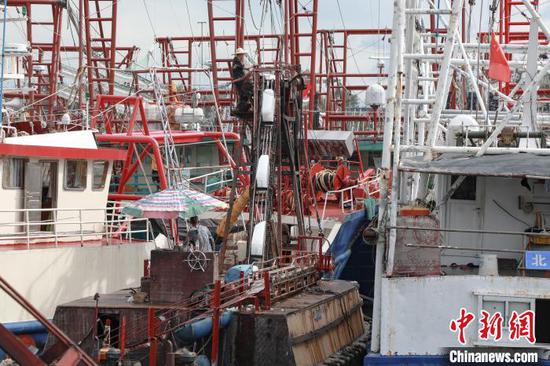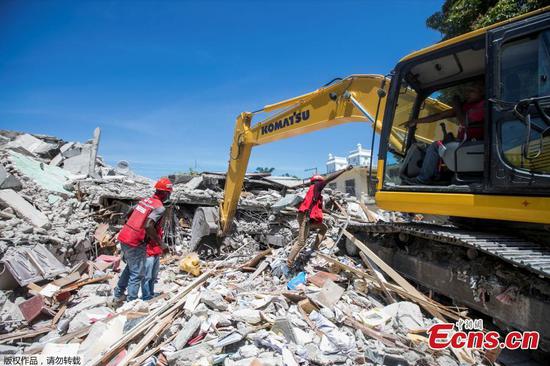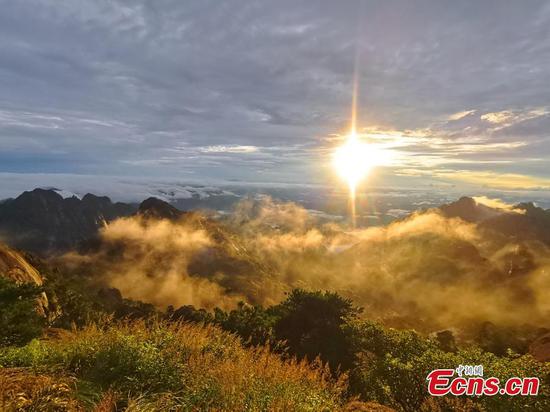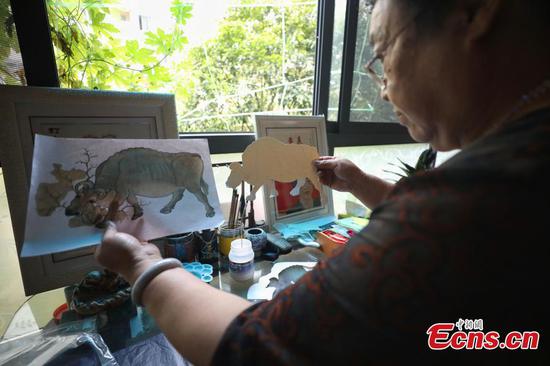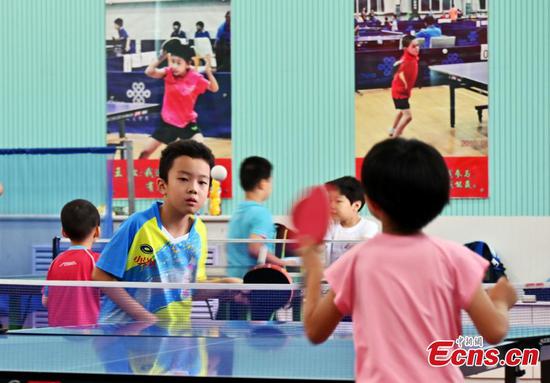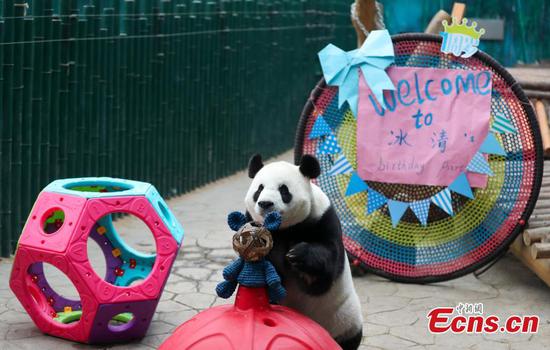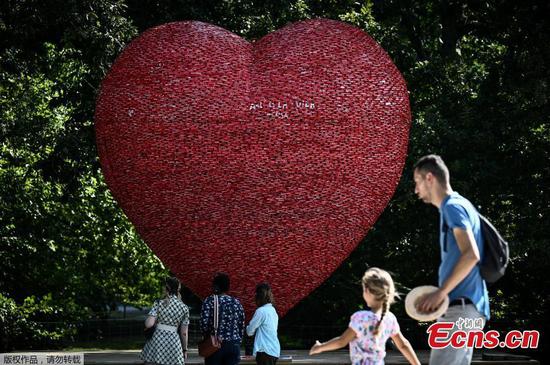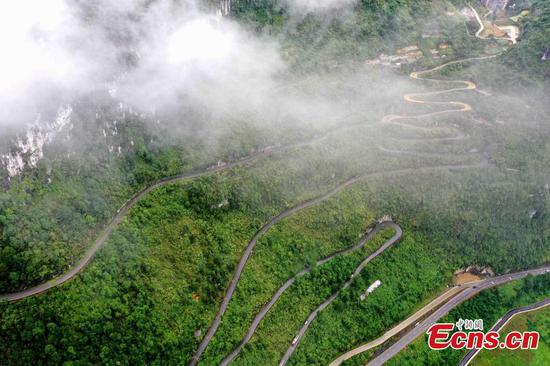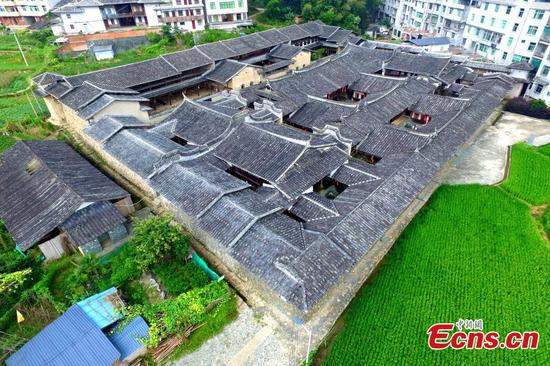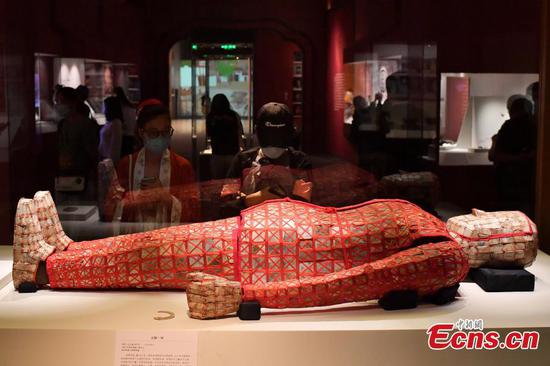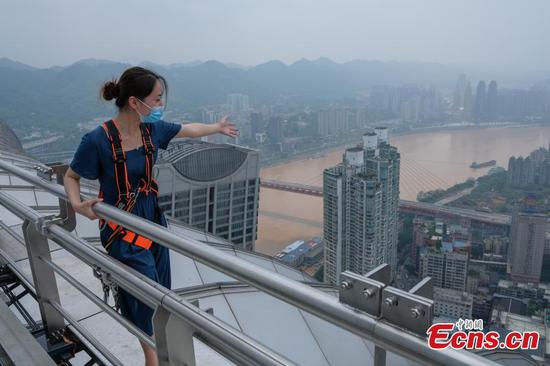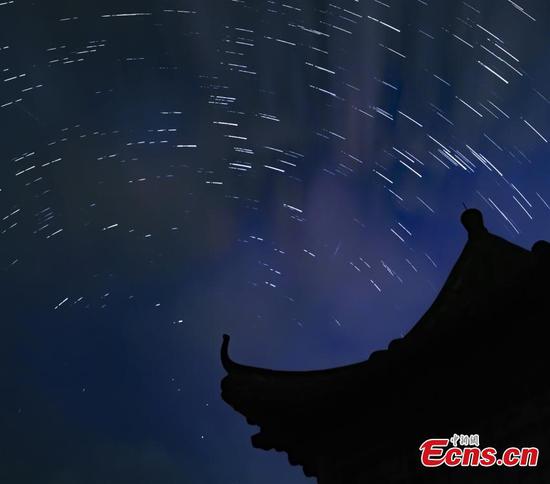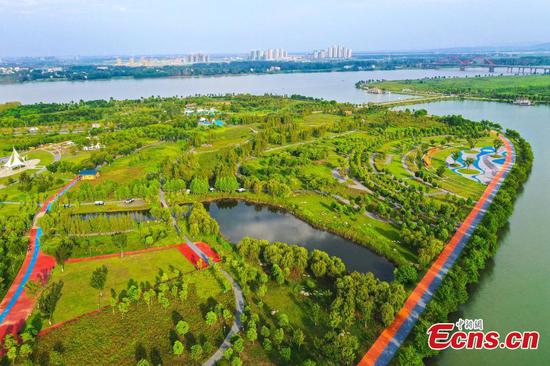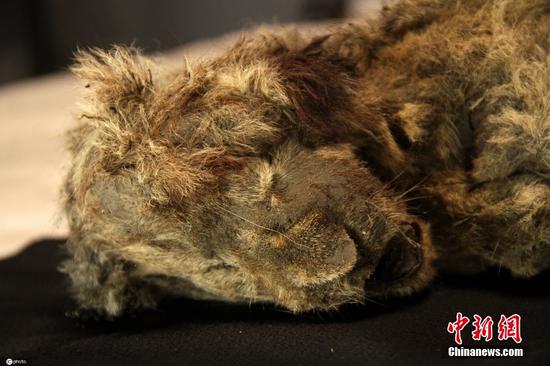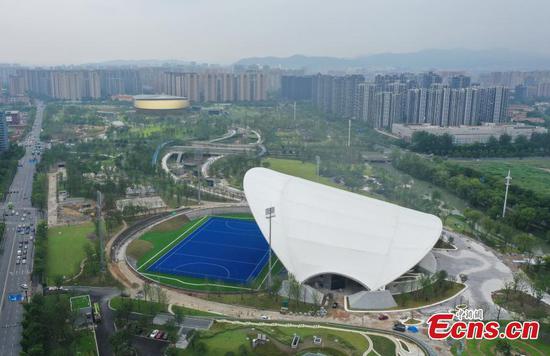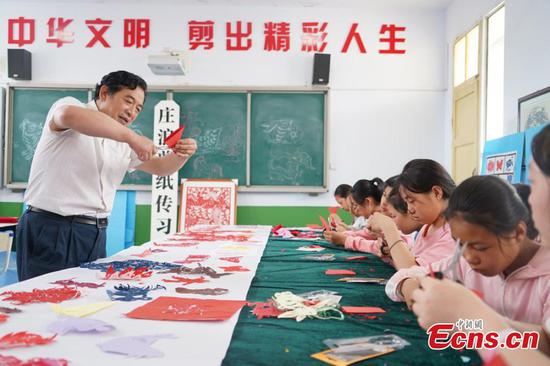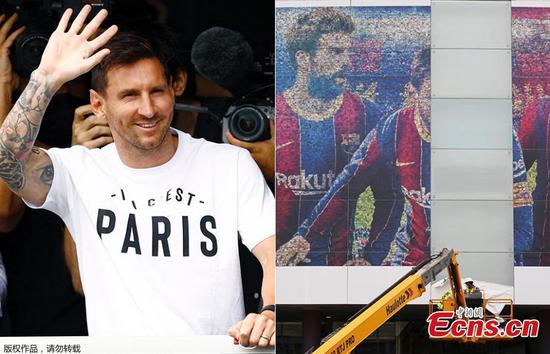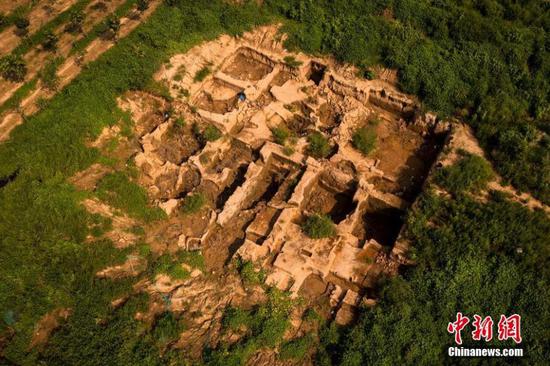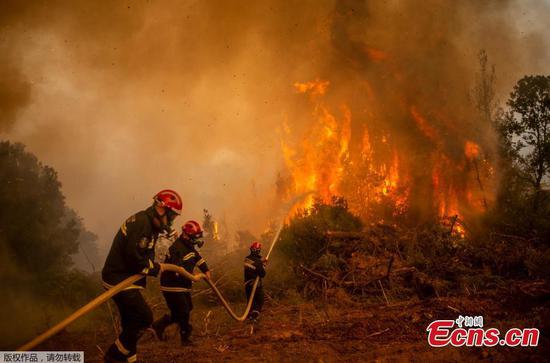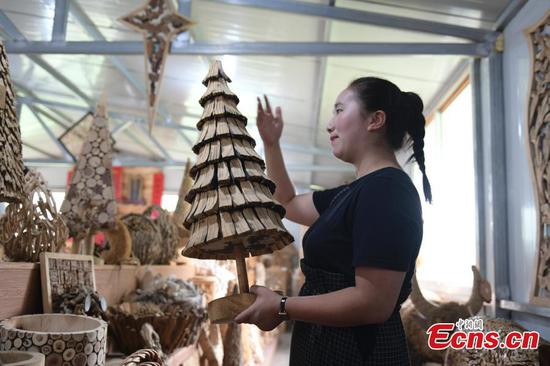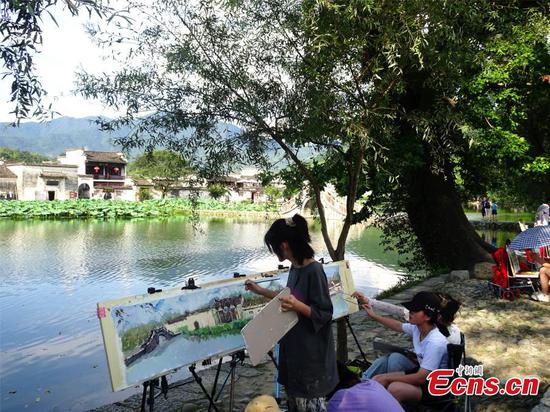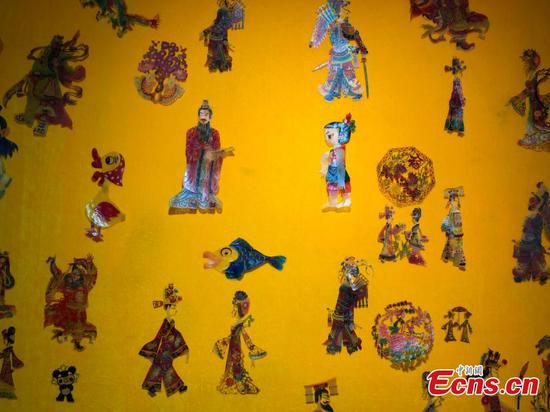![Photo taken on July 14, 2020 shows the Golden Bauhinia Square in Hong Kong, July 14, 2020. [Photo/Xinhua] Photo taken on July 14, 2020 shows the Golden Bauhinia Square in Hong Kong, July 14, 2020. [Photo/Xinhua]](http://i2.chinanews.com/simg/hpic/2021/08-17/pic1-38018133.jpeg)
The Civil Human Rights Front announced its dissolution on Sunday, for which few tears will be shed. It was founded in September 2002, ostensibly to promote democracy and human rights, although its mask soon slipped.
Dominated by attention seekers and bigots, it prided itself on organizing mass protests and inflaming tensions, and it became a magnet for anti-China elements hoping to sabotage the "one country, two systems" principle.
Indeed, although the Hong Kong Special Administrative Region is obliged under its Basic Law to enact national security laws, the Civil Human Rights Front initially made its mark by whipping up irrational opposition to the HKSAR's attempt to honor this commitment in 2003, causing it to back down.
This, of course, was a huge mistake and left the city largely defenseless once subversive elements declared war on society in 2019. The front then played a pivotal role in the turmoil that gripped the city, orchestrating the often violent demonstrations against a fugitive surrender proposal that was designed to advance criminal justice and hold offenders accountable.
In its heyday, the front had 48 organizational members, including the Democratic Party, the Labour Party, the Civic Party, the Professional Teachers' Union and the Association for Democracy and People's Livelihood. Of these, none was more sinister than the Civic Party. Two of its legislators, Alvin Yeung Ngoc-kiu and Dennis Kwok Wing-hang, visited the United States in August 2019 to seek the imposition of punitive legislation on Hong Kong.
In September 2019, Yeung and Kwok, along with three colleagues, wrote to the US Congress, urging it to enact the highly damaging Hong Kong Democracy and Human Rights Act "as soon as possible." The act, which has since been enacted, authorizes the US president to impose sanctions on China's officials, whether from the Chinese mainland or Hong Kong, to freeze their assets and exclude them from the US, all of which has happened.
Why the Civil Human Rights Front should have tolerated such brazen hostility toward China by one of its organizational members remains unexplained, but, as the saying goes, "birds of a feather flock together".
Indeed, the front has also operated at the global level. In December, it reportedly signed a joint declaration to the United Nations calling for an international investigation into alleged police brutality during the insurrection in 2019. If true, this could constitute the offense of collusion with external elements to harm the city, contrary to the National Security Law for Hong Kong.
Moreover, on March 1, the front's former convener, Jimmy Sham Tsz-kit, was among 47 people accused of participating in plans to paralyze the government and wreck the "one country, two systems" policy.
The front has always regarded itself as above the law, free to ignore the rules that apply to lesser mortals. When, usually for safety reasons, the police withheld their consent for a particular assembly, the front often pressed ahead regardless, claiming people had a right to be heard.
On May 28, its convener, Figo Chan Ho-wun, who was convicted with Jimmy Lai Chee-ying and eight others of organizing an unauthorized assembly that turned violent on October 1, 2019, was sentenced to 18 months in prison, with Judge Amanda Woodcock telling him that "actions have consequences for everyone, irrespective of who they are".
This, however, is only part of the story, and the front itself may not even have been legally constituted. In April, the police began an investigation into why it had failed, as required by the Societies Ordinance, to register with the Police Licensing Office, since 2006.
The front was asked to submit information about its operations, its sources of income and expenditure, and the bank account used to receive funds. A related inquiry was why, if not registered under the Societies Ordinance, the organization was not registered as a company under the Companies Ordinance.
However, the front refused to assist the police with their inquiries, which is highly suspicious.
Although the front has now disbanded, this does not absolve its operatives of legal responsibility for any criminal offenses that might have arisen previously, whether from nonregistration or otherwise. It always insisted it did not receive foreign funding, but this, given its assets of HK$1.6 million ($205,500), will require investigation. Although the National Security Law for Hong Kong is not retroactive, if the front has violated national security after June 30,2020, prosecution is certainly a possibility.
In a valedictory message, the front said it had "wanted to maintain its original operations", but could not because of the changed political climate. Although the Basic Law specifically protects "association and procession", the era of street paralysis, public discord and violent confrontation is over, and an organization that promoted turmoil under the guise of legitimate protest is having to face reality.
Given that the front's antics are incompatible with the values of a civilized society, the restoration of decency and sanity has rendered the group's demise inevitable.
The author, a senior counsel, law professor and criminal justice analyst, is former director of public prosecutions for the Hong Kong SAR.











